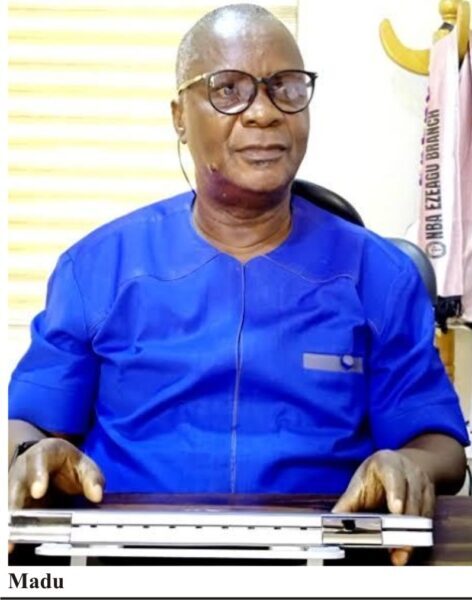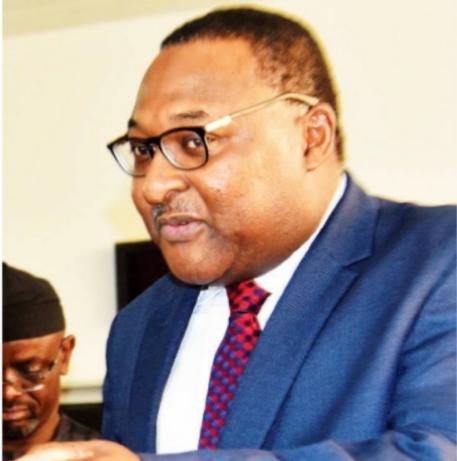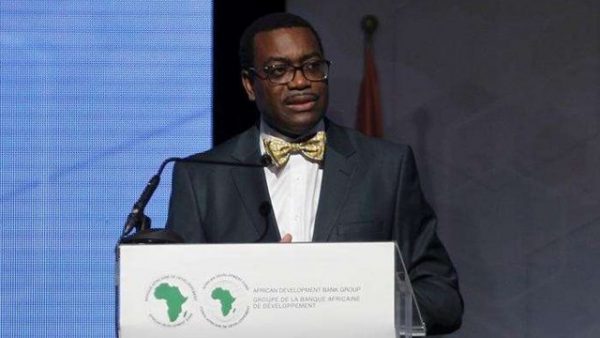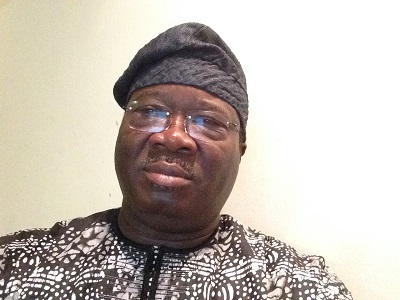Trade Facilitation: There Are Limits To What Customs Controllers Can Seize- Compt Oramalugo
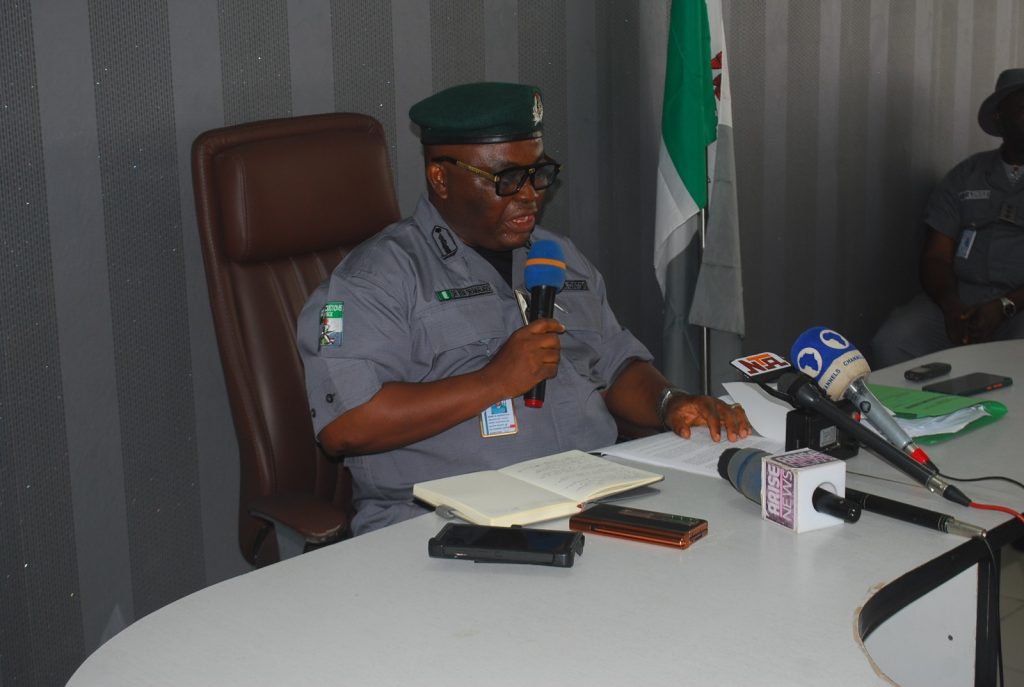
Trade facilitation in supply chain could mean many things in relations to professions and duties at hand. It has become one subject matter that is being overused and misused within the freight forwarding ecosystem.
In this interview with Comptroller Ben Nkem Oramalugo, Ph.D, Area Controller, Oyo/Osun Customs Command, he believes that trade facilitation should have a human face while rooting for customs revenue target.
Oramalugo brings his personality defined by character, capacity, competence and empathy to redefine trade, anti-smuggling and revenue administration in Customs. This has translated to huge revenue generation even from low-activity commands to interception of many illicit drugs and other items worth billions of naira in value.
He discusses what a Controller should do on arrival at new commands to drive change, how those he calls the ‘Big Boys of the economy” rape the country through waivers and exemptions; and how does he manage smuggling prune borders? His life was saved from smugglers’ angst with his redeployment from Kebbi to Oyo/Osun by the Customs management upon realizing that he had become a terror to heartless smugglers who had gone on a serial onslaught against the Customs boys who later lost two of their gallant members.
Oramalugo led the boys to create disquiet in the kingdom of the smugglers by attacking their trade to save the lives of the greater number of people in Nigeria.
Oramalugo has the philosophy of touching lives in reasonable and impactful manner with physical and human support projects. He has moved this passion from community to customs service with the badge of human face in trade facilitation with stakeholders, officers and men of customs.
He is one of the very few in Nigeria Customs Service who is scholarly inclined and has contributed so much to the growth of customs administration in Nigeria. He holds a PhD in History and Strategic Studies from the University of Lagos and double master’s degree with a third one in view having read B.Ed History obtained from the University of Benin. For his dedication to service, he has published a book,”Customs Administration in Nigeria.” This interview, Customs Executive Series, has a human-angle flavor. He spoke with KINGSLEY ANAROKE of MMS Plus Excerpts:
It is one year in February this year that you were appointed a Controller of Kebbi Command before reassignment to Oyo/Osun Command. How does it feel being in that level of management?
I thank God for making it possible for me to get to this particular level. You know that to whom much is given much is expected. I am very happy that I have reached what I may call the pinnacle of my profession. Once you get to the level of Area Controller you have reached your pinnacle. The other ones on top are just addition from God. I feel delighted that the management has given me more responsibility. It is no longer business as usual; you now realize that the position you are occupying will increase your level of humility, hard work and care for the people under you. I have realized that I am now a shepherd to many people working under me and also looking up to people for guidance. So, it is an exercise in progress.
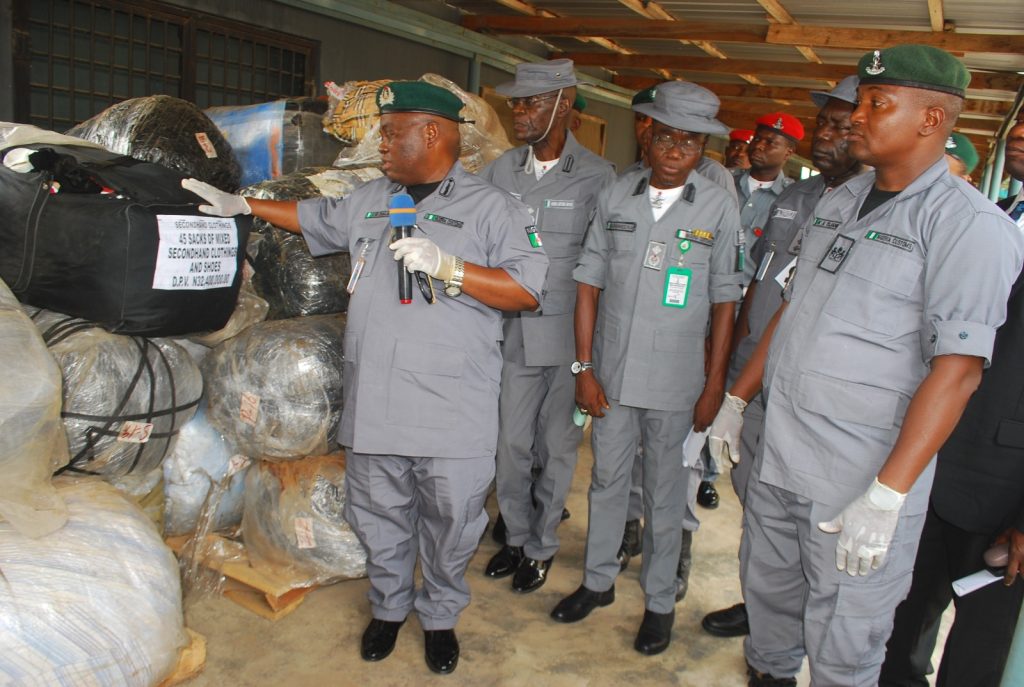
You are now in Oyo/Osun Command, what is the difference between Kebbi and where you are now?
They are similar in the sense that they both have border areas under my control but Oyo is wider and bigger in terms of dimension and size. Oyo has about 28000 square kilometers while Osun has 9000 square kilometers. And Kebbi is far more small in size than the two states. Moreover, I am now covering two states, in Kebbi I was covering one state. In Kebbi, my main border was Niger republic, though there is an in-way to Benin republic, the space between Kebbi and Benin republic is too infinitesimal. But in Oyo/ Osun and Benin republic, we have a size of 773 kilometers, that is, the border between Benin republic and Oyo/ Osun. So it is a larger space even as Oyo is more in population. And when you have more population, it means more business. Also, Oyo has more industrial facilities than Kebbi. Most of my revenue come from excise duty generated from British-American Tobacco, Coca-Cola, Nigerian Breweries and breweries in Ilesha which Kebbi does not have. When I was posted to Oyo/ Osun, the management told me that I am now having a bigger challenge and since resumption, I have been trying to cope with that challenge. So, Oyo/Osun is a bigger challenge than Kebbi. Although, both of them have similar geography.
I observed that in Kebbi you were focused on anti-smuggling activities.
Yes, the main work we had in Kebbi was fighting against smuggling. In Kebbi there is no factory for the collection of excise duty. Our job there was to combat smuggling.
In Oyo/Osun, what is your revenue target like?
I have a yearly target of N113 billion. Last year, we had a hundred billion as target.
And you surpassed it?
No. I did not surpass it. In fact, most of the area commands did not meet their target. And it is because of the harsh economic climate in the country fueled by exchange rate volatility, subsidy removal, scarcity of cash, among others. These affected the capacity of the industries to produce and the demand of their products became low. It is only when you have eaten that you have income to dispose for secondary needs. For instance, BAT and Nigerian breweries produce what I may call luxury items. It is only when you have more money in your pocket that you drink more beer and smoke. It is not like pharmaceutical products,- whether you like it or not you must buy drugs. So, as the economy is biting harder on people they have learnt to spend less money on those areas.
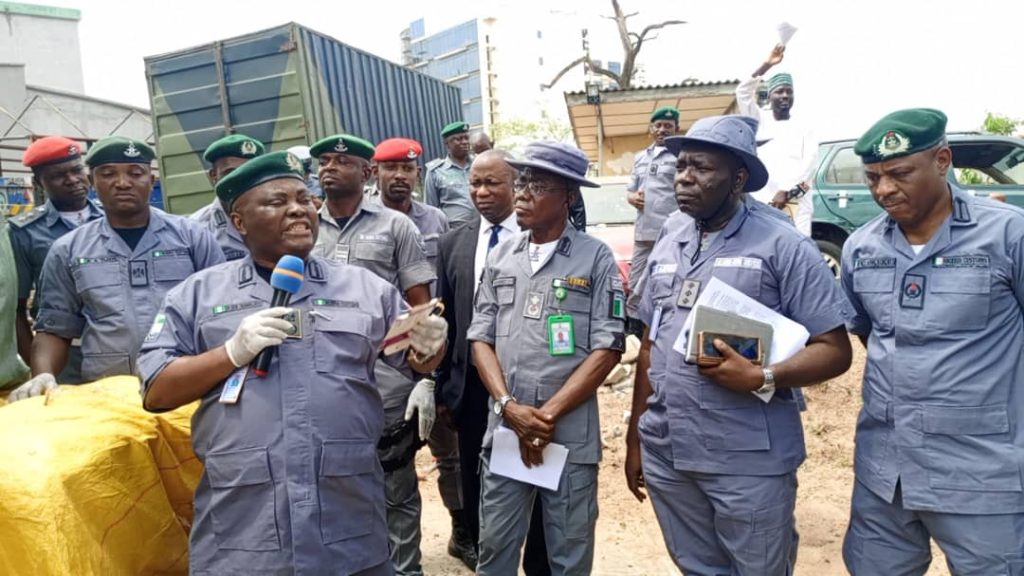
That is true because Nigerian Breweries Plc reportedly lost over a hundred billion naira last year. But there seems to be hope this year for meeting the target?
Yes! There is hope following government’s promises that the exchange rate will come down and the production capacities of these companies will increase and there will be more disposal income to stimulate demand of goods and services.
What is it like managing excise duty collection from factories in your command? I was close to some Area Controllers in Festac, whose duty was excise duty collection in Lagos jurisdiction and so can attest that it is not easy.
We don’t have the same difficulty in excise duty collection in Oyo/Osun because the kind of factories we have are well structured with good corporate governance culture and adherence to regulatory compliance. They don’t cut corners. It is not a matter of when they produce 19 cartons they will tell you it is nine. BAT is owned by British and American government, so over the years, they have been compliant. The same thing with Nigerian Breweries Plc. We don’t have problem managing them. The only problem we have with them, according to the Nigeria Customs Act, is for them to provide conducive office and living accommodations for our officers. In as much as they pay correct duty to the Federal Government they owe welfare duties to customs, they find it difficult to spend money on welfare programmes for officers. Recently, however, we wrote to all of them to remind them of their responsibility and to the effect that they are not doing us a favor. If you go to section 105 of the Customs Act 2023, it is stated that they must provide living and office accommodation for officers. They don’t have a choice.
It can even come as part of their Corporate Social Responsibility (CSR) in their budget.
Yes! And if they don’t do it , we can even seize their licenses or seal their premises. And this is statutory. Another problem we have is that most of the factories don’t want to come under excise control, they will be hiding somewhere and be manufacturing one beverage or alcoholic drink or the other. Recently, we fished out two companies. One is manufacturing soap the other one is producing hot drinks. We have written them to come under excise control and that will be more money for the command and the service. And we are sure that there are more companies operating in secret with the population that Ibadan has. We are using our intelligence unit to catch up with them. I am confident that very soon we will have more companies under the excise duty control. In summary, managing these bigger companies is not a problem. The structure they have in place does not give room for cutting corners.
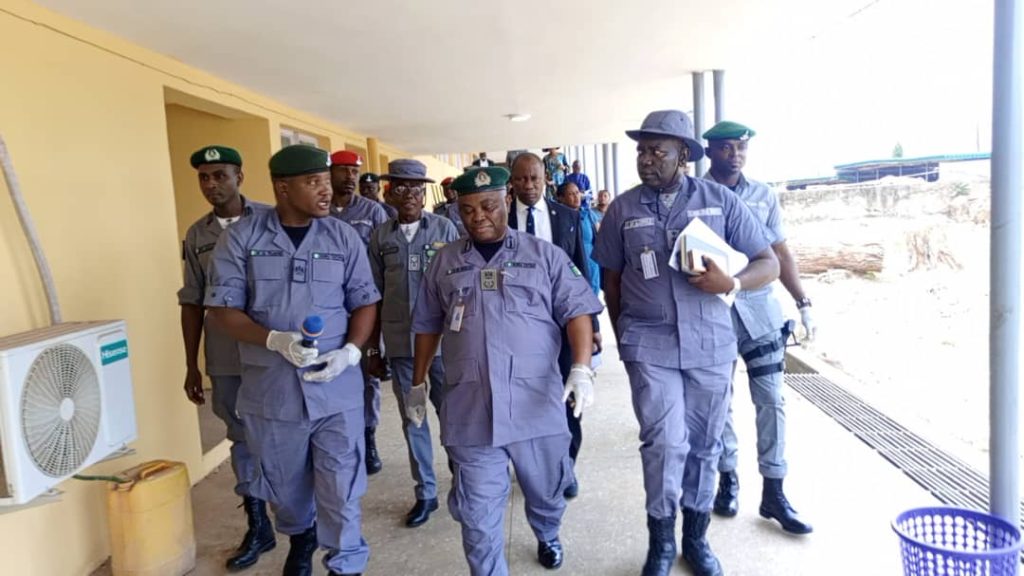
In terms of industrial mapping, how many factories would you say Ibadan hosts that are under the excise control of your command?
I think they are up to five and they are big. Recently, the management came up with activities of commands and their collection of excise duty, we were the best, that is, the highest in excise duty revenue collection since this year.
That is impressive even with all the factories in Illupeju and Oshodi in Lagos?
That is it. In fact, between January and February, we have generated 12, 499,250, 099.11 to be precise.
And the companies are not many?
They are not many. They are about four or five.
In Kebbi State, you fought too many battles that you were placed on global radar and you lost two officers or personnel. I am curious to know what the Nigeria Customs management has for those who die in active service apart from what you did for the family as the Controller of their command? Are they statutory benefits?
We have. First of all, when you die in active service, the Service will recognize your contribution to the service. It will be in the record that you died while serving your country. There is an insurance that is due to your family. It is a huge sum of money. I am not in a position to know the exact amount but I know the person is entitled to some money. Also, the Area Command where the deceased is from is encouraged to continue to assist his family. For instance, until I left Kebbi I continued to assist the families of the two late officers. The headquarters also is encouraged to employ the children or brothers of the deceased wherever there is opening for employment. We have asked for the names of the children of these ones killed in service recently. Anytime we start recruitment the CGC will ask for their names and they will be recruited. That is the way of encouraging other Customs officers to put in their best in this service.
In your book “Customs Administration in Nigeria” you discussed trade facilitation and revenue generation. Some stakeholders have asked if it possible to have trade facilitation run simultaneously with revenue target?
That has been the challenge in Customs. The revenue target is just a guide. It does not presuppose life and death to achieve it. It is for you to know what you are focusing on. What we try to achieve in Customs is to strike a balance and this has been a problem in Customs- trade facilitation and trying to earn revenue. However, we are encouraged to strike a balance between the two to achieve the target. For instance, if you are making an arrest, in anti-smuggling activities you are expected to ask if the culprit has been involved in smuggling activities before, is he a notorious smuggler? Then you look at the quantity of the items. Is it of a commercial value that will affect the community where it is being taken to? When you look at these factors you may decide to let the goods and the person to go to encourage trade. So, in doing this you are encouraging trade facilitation. Trade facilitation does not mean that you should allow illegality to thrive. It is for you to look at those illegalities with a human face and know when to withdraw and when to continue. Like if you see someone carrying two or three bags of rice from border post, it will be morally wrong and unprofessional for you to intercept the rice. But when you see someone carrying a truck load of rice, it means he wants to make profit from the illegal trade with the consequence of killing the rice mill industry because the idea of restricting rice import is to encourage local production. As an Area Controller, it is not every seizure that I allow. If it requires payment of duty I will direct them to pay duty and allow it to go.
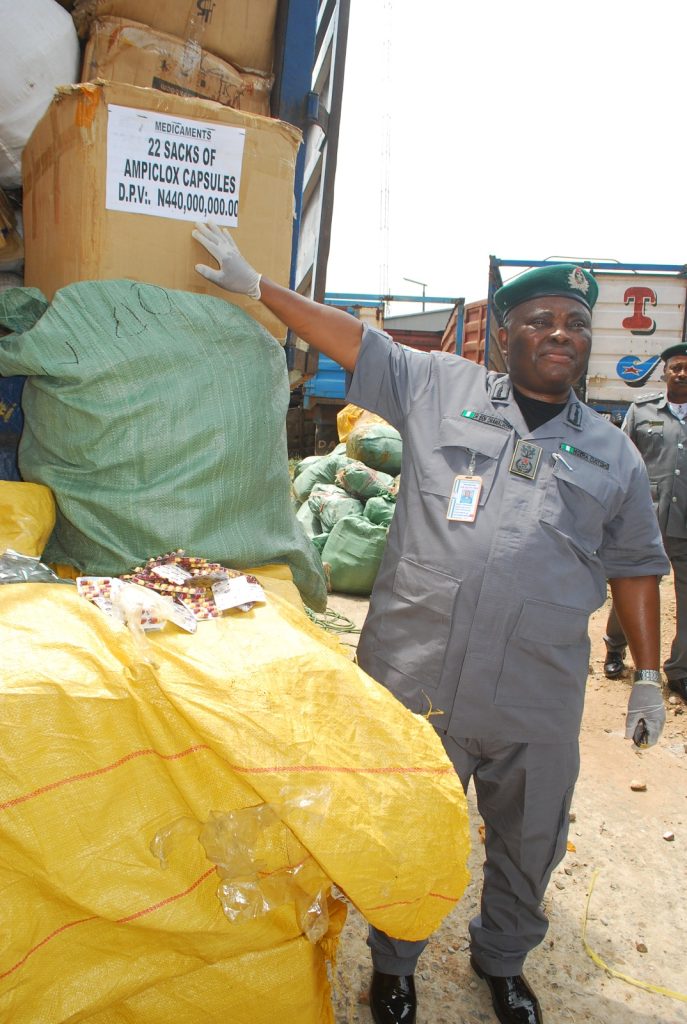
In your book you talked about the financial Rape of the Nigeria’s economy via waivers and exemptions to the tune of N1.14 trillion by some importers between 2010 and 2013. Would you as a Comptroller now maintain the same belief given the reality on ground?
What I did in my book was just an intellectual work. And when you read that book on the rape of the economy through waivers and exemptions, I have references in the book where I got those information. It is a terrible thing. These are facts everybody knows. Even if you go to Customs headquarters, it is documented. They have the record. This economic sabotage is being done at the presidential level without the connivance of Customs. Moreover, I am not talking of now especially when Buhari came. There was a substantial reduction in waivers and exemptions granted to importers. This administration also maintained the tempo. When this CGC came, he also cried about the ills of waivers and exemptions. So it has drastically reduced. In all countries of the world, there are waivers and exemptions but they are done to protect the local industries from undue competition from other climes. Here in Nigeria, when you give waivers and exemptions to manufacturers they will use it to buy luxury be items instead of the raw materials the waivers are meant for. So, I just tried to highlight the fact everyone knows in the book
But have you got any directive from anybody since you became Area Controller to grant waivers?
They lobby everyday for waivers and exemptions especially the people I call the big boys of the economy.
How would you describe the relationship you have with the workers at the command? Are they structural things you have done to make work seamless for workers and stakeholders?
As a Controller, when you report to a command you do a critical evaluation of the command which also entails knowing what they did in the past, the contributions of each staff and the position of the command. I discovered that many of them have stayed in a particular position over a long time. And when this happens, the tendency is that you become corrupt. So what I did was to reshuffle them and that is the gain you are seeing today. Like the last seizure we made, that was the highest in the history of the Command. It was to the tune of over one billion naira. You can never do it alone. You need the contributions of the officers and other workers. My job is to put the right peg in the right space and to motivate them to do the work.
I hope the CGC is sending across his commendations
In fact, he has been a great motivator. We are now feeling the warmness of an insider as CGC. When you do well he will call you and commend you. Now, he has started promotion for extraordinary achievements which we never had. So sterling feat can earn you a promotion now and so you don’t have to wait for three or four years to be promoted. Before now, no Controller dare walk into the office of the CGC for any complaint. But with him you can walk into his office as a Controller and table your problem. He will call you to ask about your problem and to know why you are not making seizures in the face of glaring illegal activities going on in your command. He will ginger you up to work. And we have a CGC that is a scholar. He read International Relations at the University of Ife. And has attended numerous courses both abroad and within the country. He is well lettered so he has what it takes to be a CGC. And when he sees an officer with character, confidence, and capacity, he recognizes that and use you and work accordingly. He does not believe in tribe. When you are doing the right thing he will stand by you and defend you. And you know that those qualities attract jealousy even amongst your colleagues.



